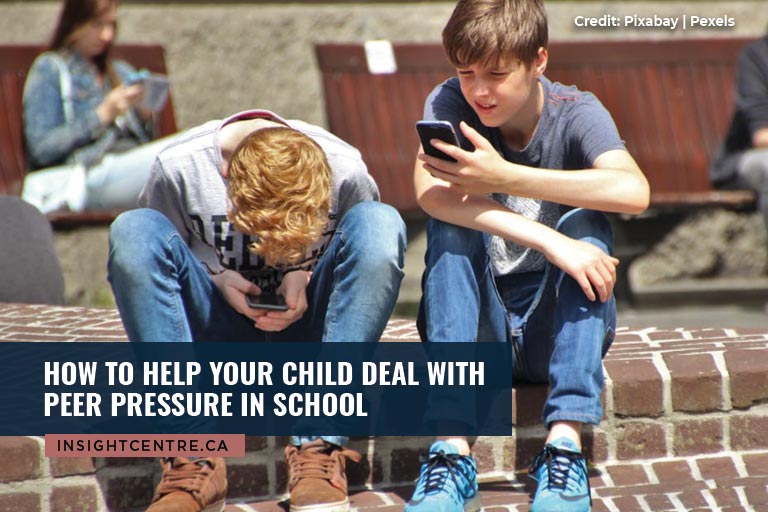How Can Teens Cope with the Hyper-Dynamic Lifestyle in Ontario?

Ontario, Canada’s most populous province, thrives on a fast-paced and dynamic energy. This vibrancy extends to every aspect of life, including academics, extracurricular activities, and social life. While this dynamism offers a wealth of opportunities for teens, it can also create a pressure-cooker environment that can be overwhelming and detrimental to their well-being.
This article talks about the challenges teens face in the province’s hyper-dynamic lifestyle and equips them with coping mechanisms to navigate this demanding environment.
The Challenges of Being a Teen in Ontario

Teens may not show it, but they can be subject to various challenges
Teens in Ontario juggle a multitude of pressures:
-
Academic Rigor
The province boasts a rigorous education system, with high expectations for performance. Standardized tests, competitive college admissions, and a culture of academic excellence can lead to intense pressure to excel.
-
Extracurricular Demands
From sports teams and clubs to music and drama, the province offers a plethora of extracurricular activities. While enriching, these can become overwhelming when combined with academic workloads.
-
Social Pressures
Social media creates a constant stream of unrealistic expectations about appearance, popularity, and lifestyle. Teens may feel pressured to keep up with a curated online image, leading to feelings of inadequacy and social anxiety.
-
Parental Expectations
Many parents, having strived for success themselves, may project their ambitions onto their children. This can create additional pressure to succeed and can strain parent-child relationships.
-
Fast-Paced Environment
The constant “go-go-go” mentality of the modern world can leave teens feeling perpetually stressed and exhausted. They may struggle to find time for relaxation and self-care.
Factors Leading to Mental Health Challenges in Teens
-
Anxiety and Depression
The pressure to excel academically and socially can lead to overwhelming anxiety and feelings of depression.
-
Burnout
Juggling multiple commitments can lead to exhaustion and a sense of emotional or physical depletion.
-
Low Self-Esteem
Unrealistic expectations from social media and peers can lead to feelings of inadequacy and low self-worth.
-
Isolation and Loneliness
The pressure to be “perfect” online and in real life can make it difficult for teens to build genuine connections and feel a sense of belonging. This needs to be dealt with immediately since a study has found that social isolation in childhood and adolescence can increase the likelihood of depression in adulthood.
Strategies for Coping with the Pressure

Teens, amidst a hyper-dynamic lifestyle, can significantly benefit from implementing these coping mechanisms:
-
Setting Realistic Goals
Breaking down overwhelming aspirations into smaller, manageable steps is crucial. Rather than focusing solely on the end result, celebrating each milestone reinforces progress and builds confidence. This approach prevents feelings of inadequacy and fosters a positive mindset. For example, instead of aiming for a perfect score on a test, a teen can focus on understanding each concept thoroughly.
-
Time Management
Effective time management is essential for balancing academic, extracurricular, and personal life. Creating a structured schedule, prioritizing tasks, and allocating specific time blocks for different activities can help reduce stress and improve productivity. Using tools like planners, calendars, or time management apps can aid in organization and efficiency.
-
Healthy Habits
Prioritizing physical and mental well-being through healthy habits is fundamental. Adequate sleep ensures cognitive function, while a balanced diet provides essential nutrients for energy and focus. Regular exercise not only improves physical health but also acts as a natural stress reliever. Engaging in physical activity can boost mood and enhance overall well-being.
-
Learning to Say No
Teen need to ecognize their limits and prioritize their well-being. Declining additional commitments when overwhelmed is not a sign of weakness but a responsible decision. Setting boundaries and asserting oneself helps prevent burnout and preserves mental health.
-
Connecting with Others
Strong social connections provide emotional support and a sense of belonging. Openly discussing challenges with trusted friends, family, or mentors can alleviate feelings of isolation. Sharing experiences and receiving encouragement can foster resilience and perspective.
-
Mindfulness and Relaxation
Mindfulness techniques, such as meditation and deep breathing, help calm the mind and reduce stress. These practices increase self-awareness and promote emotional regulation. Practicing relaxation techniques daily can create a sense of balance and tranquillity.
-
Digital Detox
Regularly disconnecting from social media is crucial for mental health. Excessive screen time can lead to feelings of inadequacy and unrealistic comparisons. Taking breaks from digital platforms allows for focused attention, creativity, and genuine human interaction.
Seeking Professional Support
If you’re struggling to cope with the pressures of life in Ontario, seeking professional help can be incredibly beneficial. Individual therapy provides a safe space to explore your challenges and develop coping mechanisms. A therapist can help you:
-
Identify Negative Thought Patterns
Therapy can help you recognize and challenge negative self-talk that contributes to anxiety and depression.
-
Develop Coping Skills
You’ll learn tools to manage stress, anxiety, and emotional challenges.
-
Improve Communication Skills
Therapy can help you develop effective communication skills to express needs and navigate challenging relationships.
-
Build Self-Esteem
Therapy can help you develop a healthy sense of self-worth and confidence.
Living in a dynamic environment can be both stimulating and overwhelming for teens. By understanding the challenges and developing healthy coping skills, teens can thrive in this demanding environment. Remember, you are not alone. Seeking professional support can provide you with the tools and resources you need to handle the pressures of life and build a foundation for a happy and fulfilling future.
Insight Centre Counselling & Psychotherapy (+1 647-633-1928) is a team of experienced therapists in Ontario who work with teens and youth. We offer a safe and supportive environment where teens can explore their challenges and develop healthy coping mechanisms.







